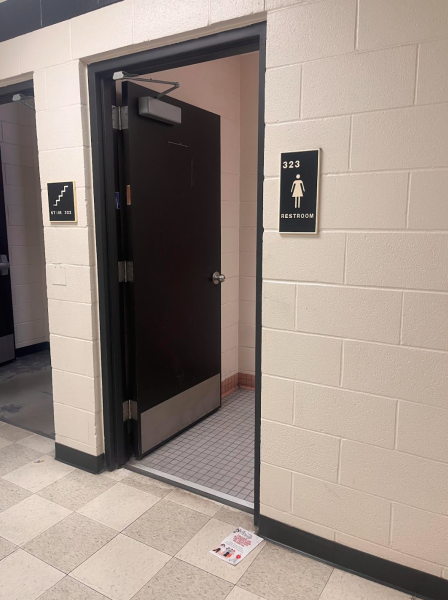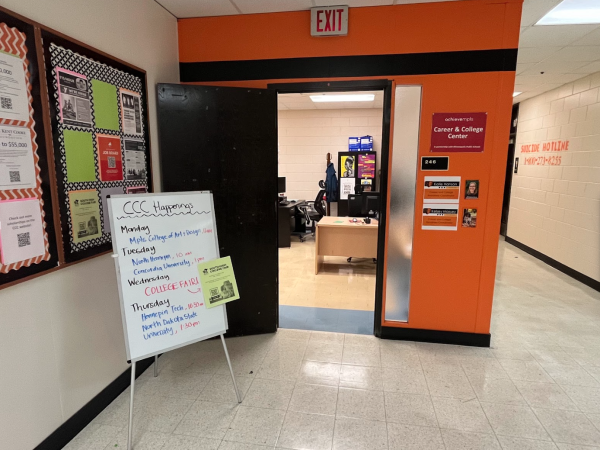Students believe they’re more than a score
April 4, 2016
The ACT, while not technically required for graduation, is a test most students take because of the overwhelming pressure placed on it.
Standardized testing aims to test a student’s basic ability, predict a student’s success in college, and provide a good comparison between students.“I understand why we need the ACT, colleges need a way to level the playing field between students on a nationwide scale,” said Grace Sommers, a junior who took the ACT this year.
A Council of Great City Schools released a new study in October that looked at school testing in 66 school districts.The study found that students in 8th grade from the 2014-2015 school year spent an average of 4.2 days, or 2.3 percent of school time, taking tests as reported by VOA Learning English. The study does not account for the amount of time students actually spend on preparing for standardized test, such as the ACT.
The problem with standardized testing, as stated in an article by Alexandra Brown, is “standardized tests often put wealthier students with access to resources that prepare them for the SAT (such as tutoring) at an advantage over less privileged students.”
When different families have the ability to pay hundreds of dollars for their student to have tutoring and special one on one attention, the test doesn’t show the ability of every student on an equal basis. Rather, it shows that those who have the money and the resources are the ones scoring exceptionally high on standardized tests. A study done by the National Center for Fair and Open Testing states that, “On average, students in 2014 in every income bracket outscored students in a lower bracket on every section of the test.” The study specifically looked at the SAT as the basis of its study stating that, “Students from the wealthiest families outscored those from the poorest by just shy of 400.”
The ACT playing field is no longer level. “The differences in scores have to do with wealth and race, the ACT score is not entirely reflective of a student’s ability,” said South senior Emily Cherne who took the test last year. She also continued saying, “I feel like the ACT isn’t a good way of establishing a person’s knowledge. It doesn’t really show what a person has learned, and it sucks that your entire future is based on that one score.”
Cherne also went on to mention how many people could easily attach their own self worth on what their score is. The ACT score may vary due to different methods of preparation, but students often define their intellectual abilities with their ACT score.
Sommers mentioned some different ways in assessing a student’s ability to learn. “Extracurricular activities and a person’s GPA are a much better measurement for a person’s abilities, all of which are important factors for a college admissions officer to consider when evaluating a candidate.”
“Extra curricular activities are a good way of accessing a student’s ability to work with others. It’s also a good place to see what types of leadership roles the student takes part in. And if admissions counselors need a more academic basis for assessing a large group of students, GPAs are the best possible way for that,” commented another junior Aaron Vanek.












